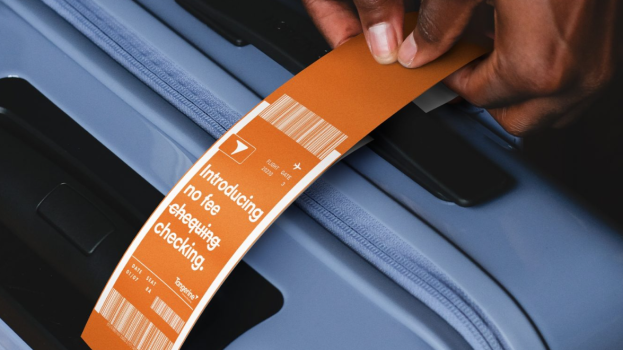Predictions of a significant decline in media spending have been rampant in the U.S. and U.K. in recent weeks as world attention has focused on the prelude to war playing out between the U.S. and Iraq.
The expectation is that war will deliver a major blow that the U.S. and the U.K. likely won’t begin to recover from until 2004 – not just because they are leading the push toward Iraq, but rather because the advertising industries of both countries are already floundering.
U.S. ad spending was already sliding early in 2001 and that trend continued post 9/11, resulting in a 10% decline from the previous year. Compare that to 12 years ago, when the Gulf War was credited with causing only a 2% decline, primarily because broadcasters pre-empted ads for war coverage.
However, the same scenario is not expected to play out in Canada, where the outlook is bullish and the economy has continued to grow despite the slide south of the border. Marketers are basing their advertising plans on the state of our nation, and not on the possibility of the war’s impact on U.S. counterparts.
Jennifer Dawkins, director of advertising and communications for General Motors of Canada in Oshawa, is extremely positive about Canadian consumer spending and hasn’t even contemplated making changes to her advertising approach.
She allows that there is more anxiety in the U.S. right now, but it hasn’t had any impact on GM’s aggressive Canadian strategy and she doesn’t expect that it will.
‘Even after something like 9/11, our strategy wasn’t to pull back but rather to stay aggressive, to market our products, keep our plants going and keep people employed,’ Dawkins says. ‘Our corporate office in Detroit made the decision to stay very aggressive and to leave the plants open. I wouldn’t anticipate there would be much change from that strategy.’
The situation is bleaker south of the border. A major concern is that the U.S. up-front television buys will be jeopardized by pre-emption and advertisers cancelling or shifting media buys, according to Doug Wood, executive partner with the advertising law firm Hall Dickler Kent Goldstein & Wood of New York and general counsel for the Association of National Advertisers (ANA).
Wood says the last time the U.S. had a down market three years in a row was in the 1940s, and that as early as it is in the year, a lot of U.S. companies are already writing off 2003, saying they don’t see it as a growth year. A fourth year of decline could be devastating.
‘There are fears that there will be some serious eroding of confidence in the up-front TV market, so next year when the up-front comes, there could be a disaster like a couple of years ago when they got only 20% sold. If that happens again it will have a ripple effect with all media across the board.’
Wood says the concern is that a protracted war requiring a lot of network coverage will result in a lot of pre-emption. And if there are casualties, TV viewers will have a whole different psyche, an entirely different attitude.
‘All of which may cause people to nest and stay home, not go out, not spend money, and have a reaction we haven’t seen before. If that’s the case and there’s a backlog of makegoods, then advertisers are going to become concerned about the ability of networks to deliver on those makegoods and worse, to be able to deliver an audience demographic that was part of what they were supposed to be buying in the first place.’
Wood expects some advertisers will cut back their budgets simply because that’s what typically happens in any recessionary economy: ‘It’s difficult for them to justify spending certain levels on media and production when sales are declining and the economy is going down. How do you justify laying off 1,000 people at the same time you’re increasing your media budget?’
This means media buyers will begin re-examining their buys, likely looking at cutting TV spot buys, certain magazines and, if people aren’t travelling, probably radio as well, he says. Newspapers aren’t expected to take much of a hit.
Wood is counseling his clients to exercise caution and planning, peppered with legal advice on what they should do when they don’t have signed media commitment contracts. He is also telling advertisers to look at their ad messaging and examine deals with their agencies and production companies.
‘There are so many dynamics that haven’t been present before, so many things the U.S. hasn’t seen before as a country and as a market,’ says Wood. ‘How all those things factor in nobody knows but there’s a lot of speculation. Clearly there’s no sign of us coming out of this with any level of confidence.’
But recent history has shown that the Canadian industry is able to maintain autonomy, even in the face of U.S. decline. Hugh Dow, president of Toronto’s M2 Universal, says 9/11 had little impact on media in Canada, with spending only affected by broadcaster pre-emption of commercial content, a loss which was likely recovered by the end of 2001.
‘It was encouraging to see [last year] that there wasn’t an automatic withdrawal of [media] funds because of the U.S. economic situation. Budgets tend to be consumer-driven and sales-driven and there was pretty strong evidence that the Canadian marketing economy and business was very different from the U.S.’
Paul Maher, Toronto-based CEO of Starcom MediaVest Group, only arrived in Canada last August from China, but he has observed that while the U.S. economy has been stumbling towards a recession, the Canadian market is remaining strong. The kinds of discussions he’s been having with clients have centred on whether it would be appropriate for them to be actively advertising their brands if a war breaks out. Maher expects that rather than cutting budgets, media placements would change.
‘Part of what Sept. 11 and its aftermath taught us is that there are brands that clearly do not want to be associated with that kind of coverage. But I’m not sure that would necessarily mean those brands would reduce their expenditure. I think the more likely scenario is that they would just change the profile of the way we put campaigns together for them.’
David Cairns, partner at Toronto media consultancy Asylum thinkgroup, says that if there is a war, audiences for news and information will increase, providing new opportunities for some advertisers and media owners.
‘CNN became a viable media vehicle in the last Gulf War. Twelve years ago the world was tuned to CNN. As long as advertisers and media buyers can find appropriate news vehicles to be in, you might see CBC Newsworld and CTV Newsnet prosper.
‘There really are two issues: What’s going to happen to budgets and then how will those budgets shift around in programming?’
What the long dance between the U.S., the U.N., and Iraq has provided is time. Time to discuss those two issues and to prepare contingency plans, a process that the surprise attack on Sept. 11 did not permit.
Lorraine Hughes, president of OMD Canada in Toronto, has taken a proactive stance on the possibility of war by issuing a position paper to the agency’s clients.
Hughes says the paper outlines an economic perspective – what the impact will be on various sectors – and a discussion of how media will react to war, what advertisers should expect and what appropriate action would be.
OMD is advising clients that their first step should be to take an objective look at all of their advertising messages to see if any could be deemed inappropriate in a war situation.
‘They should go through and assess what in their stable of ads might fall into that camp. We’re advising them to let us know where their comfort level is so at least we can proactively manage the media.
‘I think we have to be proactive because it’s going to be impossible for broadcasters to accommodate everybody. If a conflict breaks out on a Friday evening or in the early hours of a Saturday morning, broadcasters have advised us that it’s unlikely they could accommodate a request to pre-empt a client from regularly scheduled programs until the next Monday.’
Some of the sectors Hughes sees taking a hit include travel, both personal and business, although domestic tourism will benefit as people cut out international travel. Retail is expected to go down, particularly consumer durables and luxury goods.
Telecom shouldn’t go down and, as a matter of fact, she says it will probably increase, with travel being soft, because there will be more teleconferencing. Home entertaining and affordable luxuries such as candles and nice soaps will go up as they did after Sept. 11. Alcoholic beverages and soft drinks will also be impacted positively.
Hughes warns that oil prices will have a major impact across the board because of the cost of transporting products domestically and cross-border. With high prices at the gas pumps and rising interest rates, she says everyone is going to feel the pinch.
Sunni Boot, president of Toronto-based Optimedia Canada, is predicting that growth and investment in advertising will remain stable but that the cost of delivering the messages will increase because of advertising pre-emption and having to assess whether individual ad messages fit the media environment they’ve been placed in. But she says Optimedia clients aren’t looking to pull out of a medium such as television because of the possibility of war coverage.
‘I don’t see anyone changing their media mix because of the conflict. That would not be a recommendation we would make. But we’d avoid news programming for all categories. We buy environment and we can’t control that environment, so why go in?’
Tara Peever, spokesperson for American Express Canada, says the worldwide corporation does have contingency plans in place should war break out, but that these plans will be applied on a market-by-market basis. So the company will react to the reality of the Canadian situation – not what is happening elsewhere.
Most agree that the short-term outlook for Canada is nothing to worry about, but it is generally believed that a prolonged economic downturn in the U.S. – war or no war – could eventually impact our industry.
‘The situation is going to be monitored as we go but generally the economy is pretty good here and we’re not facing the same economic situation as the U.S.,’ says Graham Lute, SVP marketing, communications and corporate affairs for Nestle Canada in Toronto. ‘However, in the longer term, it’s going to have an effect one way or another. A lot will depend on product categories. The travel business will obviously be impacted.’
Hasan Imam, VP of consumer marketing in Toronto for Diageo Canada, says his company would rethink its strategy only if a war on Iraq has a negative effect on the beverage alcohol business. Diageo will not change its planned media spend before that occurs.
When it comes to media placement, he says ads won’t intentionally be placed within war coverage, but if it does happen, he will have to make a decision whether to change the schedule to avoid it.
For Toronto-based Federal Express, there will be no changes, says Jill McVicar, senior communications specialist: ‘We’re not going to speculate on what might happen ‘if.’ We do a lot of contingency planning and rely heavily on our agencies and media buyers as to what we should do and, obviously, what Memphis headquarters is doing.’
In general, says Optimedia’s Boot, Canadian marketers will react only to hard facts, and the facts right now are that Canada has good employment, low interest rates and good housing.
‘Those are the real tangibles. Canadians are spending and I think that’s going to keep going,’ says Boot. ‘I think that only if we start seeing job losses – and that’s probably going to start with the travel sector – when you start seeing headlines like ‘Air Canada lays off 10,000 people….’ If that happens, those are the kinds of headlines that will erode consumer confidence and spending. I don’t think the conflict itself is going to do that.’























